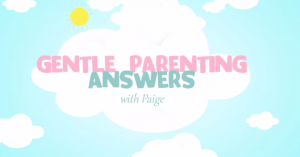
Source: iStock
“Obviously there’s nothing wrong with having casual sex,” they begin. I start to raise my eyebrows.
“…if that’s what you’re into…” they continue. Now I’m really on guard.
“…but I’m just concerned that you’ll get hurt.”
Concerns like these usually come from a genuine place, and people who have casual sex hear them from friends and family members all the time.
The people who say these things to us aren’t necessarily conservative or overtly sex-negative – sometimes they’re even fellow feminists.
And I get it.
For many people, sex is a serious thing even when it’s casual.
You can get hurt. You can hurt others. You can be forced to confront difficult truths about yourself and other people.
But the idea that casual sex is uniquely “concerning” as a category of human activity is based on some false assumptions and myths.
When people we trust, and whose opinions we value, express these “concerns” about us, it can be hard to find a way to respond.
Likewise, it can be hard when you feel like someone you care about is doing something that might hurt them, even if some part of you recognizes that your concerns might be a bit misplaced.
This article is intended to help people who want to be supportive and sex-positive understand when their concerns about someone’s sex life might veer into the realm of sex-shaming.
Something to note before I begin is that the examples in this article mostly apply to women who are having sex with men – because that’s the context in which sex-shaming disguised as concern is most commonly expressed.
Sex-shaming operates in other ways when it comes to men and trans people, and I can only speak to my own experience as a queer cis woman.
So here are six common “concerns” about casual sex that I or people I know have heard from people we’re close to.
1. ‘Won’t You Get an STI?’
So you know someone who’s having lots of casual sex with people they don’t know particularly well. If you’re reasonably informed about sexual health, you might worry that this person will contract an STI as a result of having so many partners.
You wouldn’t be alone. That’s a concern that people who hook up a lot hear often. Of course we want our loved ones not to get sick.
But without realizing it, you’re actually assuming a lot of things there.
First of all, are you also concerned about them contracting another type of communicable illness, one that we don’t readily associate with sex?
I’ve caught terrible colds and flus from others (including partners) that messed with my health for weeks, but nobody ever seems to worry about that.
Why not?
We assign a moral value to STIs that we don’t to other types of infections and illnesses. The idea that you might catch the flu from your partner feels completely normal to most people.
Even though having the flu sucks (and, in a lot of ways, is more damaging to our day-to-day life than most STIs), we don’t freak out and condemn people who catch it from someone.
Sure, the probability that you’ll get a sexually transmitted infection does go up if you have more partners, and if you have more sex in general.
However, you can lower that probability considerably by using barrier methods of protection, like condoms and dental dams, and by keeping communication open with your partners about sexual health.
A person with many casual partners who actively discusses STI risk with them, uses barriers, gets tested regularly, and refuses to hook up with people who won’t participate in that process could actually have a lower risk of contracting an STI than someone who is serially monogamous – especially if that monogamous individual doesn’t use barriers, get tested, or discuss STIs with their partner(s).
The assumption that underpins this “concern” is that a person who has lots of casual sex is also careless about their sexual health. And that’s taking a very sex-negative approach.
It conflates having sex with being unhealthy, unsafe, and even “dirty.”
Speaking of “dirty,” though, it’s also important that we reduce the stigma of having an STI. Although it’s makes sense that people want to avoid getting and passing along STIs (just like with any other illness), the fact that they’re transmitted sexually doesn’t automatically make them worse than other types of illnesses.
We say that a person who has tested negative for STIs is “clean,” implying that someone who has tested positive is “dirty.” Yet more than half of all people will have an STI at some point in their lifetime, and most STIs are treatable.
STIs don’t have to be this horrible specter haunting anyone with an active sex life. People who have a lot of sex with a lot of partners do assume a slightly higher risk of STIs, because miscommunications happen and barriers aren’t always perfect.
But maybe for these people, that risk is worth it – and it’s a risk they assume knowingly and consciously.
2. ‘Won’t You Get a Bad Reputation?’
Friends and family of people who have lots of casual sex are often very concerned about the person’s reputation.
This makes sense in a way – because most of us realize that casual sex is stigmatized, at least for women. Nobody wants to see someone they care about ridiculed and dismissed by others.
But honestly, when I get this question, what I hear underneath is: “Don’t you realize that I’ll think less of you?”
And maybe that’s unfair. After all, they’re usually quick to remind me that it’s not that they’ll think less of me; it’s that they’re worried that others will.
But if they didn’t agree with that sort of sex-shaming, wouldn’t they tell me to do what makes me happy and forget about what others think?
After all, that’s what they say whenever I’m worried about being liked by others and the issue at hand isn’t sex.
Given the messages we all receive about casual sex in our society, I doubt there’s many people who genuinely aren’t aware that having lots of casual sex can lead to a “bad reputation” if you’re a woman or perceived as one.
We know.
We’ve just decided that we’re not going to live our lives based on outdated, judgmental social norms. So there’s no need to remind us that sex-shaming is a thing.
3. ‘You’ll Get Your Heart Broken!’
If you, like me, had an abstinence-only sex education curriculum in grade school, you might remember hearing that the reason you shouldn’t have sex outside of marriage is that sex will make you fall in love, and then you’ll get your heart broken.
This message is targeted at women more so than others, and sometimes it’s even implied that you’ll never be able to love anyone again. Pretty alarming, right?
Some of the people who promote this myth even claim that there’s a scientific explanation for it: namely, that having sex causes a release of the “love hormone” oxytocin, which creates an extremely strong bond between the couple.
This is apparently especially if you’re a woman, Because Reasons. (The reason is that social conservatives are more interested in policing women’s sexuality than pretty much anyone else’s.)
This myth is expertly debunked by sex educator Heather Corinna. The truth is that, while oxytocin does seem to play some role in sex and bonding, it also influences a huge variety of different human activities – and we can’t come to any firm conclusions yet about exactly how that plays out.
The idea that having casual sex will cause you to form a permanent attachment to someone that will lead to heartbreak if you don’t marry that person and stay with them forever and ever is clearly false.
Maybe some people’s brains work that way – and those people might want to avoid casual sex – but most don’t.
4. ‘Aren’t You Being Pressured To Do It?’
Concerns about people being pressured to have sex are very valid, especially when it comes to marginalized people.
Unfortunately, rape culture is real – and many people have experienced pressure to have sex, both from specific individuals and from our culture in general.
People who are asexual or just currently uninterested in sex due to trauma, health issues, or any other reason face a lot of pressure to “just try it” or “just get over” whatever issue is causing them to choose not to have sex.
It’s important to acknowledge all of that.
At the same time, though, we often assume that women who have casual sex were pressured into it – because many people still believe that there’s no way a woman could genuinely want casual sex.
This type of thinking robs women of their agency and perpetuates harmful myths about sexuality. The idea that women ultimately aren’t really into sex is used to justify social norms that demand passivity and “purity” from women, as well as aggressiveness from men.
It’s important to note that this particular set of myths about women’s sexuality largely only applies to white women.
Women of color are more likely to be seen as inherently and dangerously sexual rather than sexually “pure” and disinterested. If a woman of color is having casual sex, it’s much less likely that someone will assume that she’s being pressured into it.
These views about women of color also contribute to rape culture. When women of color try to report sexual harassment or assault, they’re even less likely to be believed than white women are.
Both sides of myth are harmful and false.
White women are not inherently disinterested in casual sex, and women of color are not inherently interested in it. We can take the issue of rape culture seriously without assuming that every white woman who has casual sex is getting pressured into it.
5. ‘What If You’re Sexually Assaulted?’
When I was younger, older adults in my life cautioned me about casual sex because they feared that I would be sexually assaulted.
As with the closely related fear that women are being pressured into having casual sex, which I discussed above, it’s reasonable to worry that someone you care about will be sexually assaulted – because it’s unfortunately so prevalent in our society.
But the way this fear is framed here fits with one of the myths of rape culture, which is that sexual assault is something that happens to women who are too “out there” in terms of their sexuality – too assertive, too “provocative,” too “promiscuous.”
But, like many elements of rape culture, this belief blames the victim by assuming that sexual assault happens because of something the survivor chose to do rather than something the assailant chose to do.
Presumably, these well-meaning adults feared that if I “put myself out there” by pursuing casual sex, someone would use that as an excuse to violate my boundaries.
It feels so tiresome to repeat it, but I’ll repeat it anyway because so many people still need to hear it: Sexual assault is caused by only one thing, and that is someone’s choice to sexually assault someone else.
The only way to prevent sexual assault from the survivor’s side is to avoid other people entirely.
Some people get assaulted by their best friends while they’re hanging out together and watching a movie. Some people get assaulted by their relatives in their own homes.
Denying ourselves the pleasure of having the sex we want isn’t going to help. All it’s going to do is teach rape apologists that they can effectively control women’s sexuality by convincing us that sexual assault is our fault.
6. ‘But How Will You Ever Find a Serious Partner That Way?’
Well, for starters, plenty of people who are into casual sex don’t care about finding a serious partner. So this concern is often misplaced.
For many people who enjoy hooking up, the whole point is that they’re not looking for anything serious right now. So of course, they don’t expect to find it by having sex with people they meet at bars or on Tinder.
Not finding a serious partner is exactly the point.
For other people, the lines can be a little blurrier. They might be interested in getting their sexual needs met while they’re still looking for the right person, or they might be using hookups as a way to potentially find that person.
While there’s a lot of ridicule out there of people who have casual hookups in the hopes of getting into a relationship – especially if those people are women – in my experience, it’s not at all unusual for it to actually work out that way.
Although most of my hookups didn’t lead to anything more, most of my serious relationships started off as casual sex between friends or acquaintances.
It was a way for us to explore our interest in each other so that we could figure out what else – if anything – we wanted.
This concern is often closely related to developing a “bad reputation” and is based on the assumption that if you’re a woman who has a lot of casual sex, others won’t see you as “girlfriend material.”
It’s undoubtedly true that some people think that way because of unexamined sexist and sex-negative beliefs, but those generally aren’t the people we want anything to do with.
So, When Is Concern Justified?
You might be thinking to yourself, “Sure, I shouldn’t just assume that someone’s going to get an STI or get pressured into something just because they like casual sex. But what if it seems like they really are?”
This is tough terrain to navigate.
There are real problems with hookup culture, and sometimes people do make choices that can bring them harm.
But unless you’re pretty close to someone, it rarely seems appropriate to discuss their sex life with them unless they start the conversation.
In many cases, even if you are close, this type of conversation will cause someone to get defensive and shut down.
When should you be concerned about someone? When it comes to sexual health, it’s fair to be worried if you know that someone does not discuss STI risks with partners or practice safer sex, regardless of how many partners they have or how serious or casual those relationships are.
For most of the other concerns on the list, I’d be worried if someone’s behavior really seems at odds with what they say they want.
If a friend says they only feel comfortable having sex in a serious relationship, but they’re having lots of one night stands, I might worry that they’re being pressured or that they feel like they don’t deserve or will never find a serious relationship.
If you want to talk to someone about something like that, it’s best to start the conversation by asking them how they’re doing and how they’re feeling about their relationships, rather than asking “What if [terrible thing happens to you]?”
Questions like that will alarm people and put them on the defensive, even if the person thinks there’s some truth to the concern.
Ultimately, though, we are all vast – and we contain multitudes.
Someone might be ambivalent about casual sex and yet choose to do it anyway for any number of reasons. Ambivalence doesn’t necessarily imply a lack of consent, because people have the agency to choose things that they’re unsure about or not fully comfortable with.
That’s not necessarily the same thing as being pressured or coerced, and when we claim that it is, we deny people the right to explore things that they’re unsure of their feelings about.
I recognize that there are no easy answers here.
But my hope is that the more we promote real sex education and fight sexual stigma, shaming, and rape culture, more and more people will be able to have sex that is consensual, safe, and pleasurable – whether it happens in the context of a serious relationship or a casual hookup.
[do_widget id=’text-101′]
Miri Mogilevsky is a Contributing Writer for Everyday Feminism and a recently graduated with a Masters in Social Work and is starting a career as a counselor in Columbus, Ohio. She loves reading, writing, and learning about psychology, social justice, and sexuality, and is working on her cat photography skills. Miri writes a blog called Brute Reason, rants on Tumblr, and occasionally even tweets @sondosia.
Search our 3000+ articles!
Read our articles about:
Our online racial justice training
Used by hundreds of universities, non-profits, and businesses.
Click to learn more




















